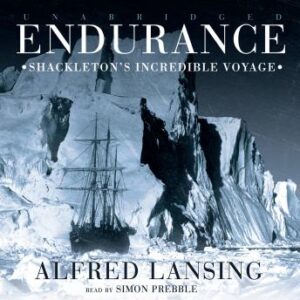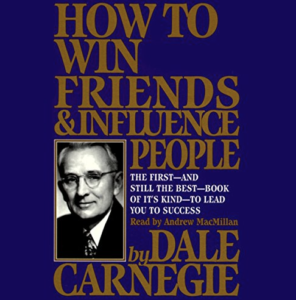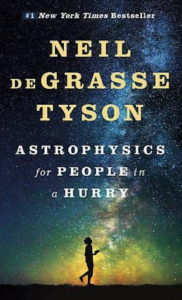Bram Stoker’s Dracula
 I thought this was going to be an interesting listen. Why not listen to a classic piece of literature that may make my legs move a little faster… as I run through the night. I enjoy listening to some of these stories, Lore, which is a great podcast about other “folk tales” about the unknown.
I thought this was going to be an interesting listen. Why not listen to a classic piece of literature that may make my legs move a little faster… as I run through the night. I enjoy listening to some of these stories, Lore, which is a great podcast about other “folk tales” about the unknown.- It was fun since everything was written in the journal. This reminded me of some of the video games we used to play when I was younger. Now I understand the style.
- Interesting ways of belief on how to fight off infection to become a vampire. This was giving blood to help nurse those back to health.
- Van Helsing turn up to be a hero with his knowledge and ability to take action.
- At times, some of the storylines did get a bit confusing, but for the most part, you could keep up on what was going on.
- Garlic saves… not only Italian food, but also saves you against vampires.
- Very cool to see one of the heroes and admirable people be Mina for the time of the writing. She was a strong and brave character.
- It was interesting to see the connection with wolves. Also, some of the literary descriptions did make me want to travel out to Eastern Europe.
- Some fun quotes:
- “We learn from failure, not from success!”
- “Remember my friend, that knowledge is stronger than memory, and we should not trust the weaker”
Endurance
 Funny thing. I ended up downloading Endurance for my ultramarathon. (But then I never ended up listening to anything while I was out there.) But, there’s been a lot of talk about this boat since it was recently discovered again. What though an interesting listen. Here were some highlights:
Funny thing. I ended up downloading Endurance for my ultramarathon. (But then I never ended up listening to anything while I was out there.) But, there’s been a lot of talk about this boat since it was recently discovered again. What though an interesting listen. Here were some highlights:
- Really amazing on how the human spirit could live at the bottom of the world
- Unbelievable account to understand that you can fight through cold, darkness, and two years at sea… against all odds, yet still staying positive to ensure the survival crew. They tended to encounter obstacle by obstacle, yet took it head on … and never reconsidered the decisions. Whether it be leaving a dead seal behind for food because at the time they had too much… or making a decision to move to the open sea… it was always forward and beyond.
- Great quotes
- “Of all their enemies — the cold, the ice, the sea — he feared none more than demoralization.”
- Shackleton said there once was a mouse who lived in a tavern. One night the mouse found a leaky barrel of beer, and he drank all he could hold. When the mouse had finished, he sat up, twirled his whiskers, and looked around arrogantly. “Now then,” he said, “where’s that damned cat?”
- This indomitable self-confidence of Shackleton’s took the form of optimism. And it worked in two ways: it set men’s souls on fire; as Macklin said, just to be in his presence was an experience. It was what made Shackleton so great a leader.
- Unlike the land, where courage and the simple will to endure can often see a man through, the struggle against the sea is an act of physical combat, and there is no escape. It is a battle against a tireless enemy in which man never actually wins; the most that he can hope for is not to be defeated.Unlike the land, where courage and the simple will to endure can often see a man through, the struggle against the sea is an act of physical combat, and there is no escape. It is a battle against a tireless enemy in which man never actually wins; the most that he can hope for is not to be defeated.
Win Friends and Influence People
 I have been really inspired by this person and this book. Lots of great insights on this quick “listen”:
I have been really inspired by this person and this book. Lots of great insights on this quick “listen”: - Rule number one – don’t criticize, condemn, or complain.
- The only way on earth to influence other people is to talk about what they want and show how to get it.
- The difference between appreciation and flattery? That is simple. One is sincere and the other insincere. One comes from the heart out, the other from the teah out. One is unselfish, the other selfish..
- Bait the hook to suit the fish.
- Criticism cuts deep. Abraham Lincoln learned that lesson quickly. The intent of a person may not consider other factors. e.g. Lincoln had a generally who disobeyed his orders to take out a confederate army. This could have ended the war, but Lincold could not understand the carnage and blood this general may have seen. So, next time criticism is on the tip of your tongue, take out a five dollar bill and think about what Abraham Lincoln would do.
- Franklin was the same way:
- Any fool can criticize, condemn, and complain—and most fools do.
- Franklin was the same way:
- A great man shows his greatness by the way he treats little men. (Thomas Carylyle)
- People are emotional creatures, not logical beings. Lead with empathy, not logic.
- It is possible to change other people’s behavior by changing one’s behavior towards them.
- If you aspire to be a good conversationalist, be an attentive listener. To be interesting, be interested.
- A person’s name is to that person the sweetest and most important sound in any language.
- A Man Without a Smiling Face Must Never Open a Shop – Chinese proverb
- Whether writing fiction, selling widgets, or being a good manager – to improve your skills, become better at understanding the other person’s needs. It’s not manipulative. It’s the core of persuasion.
- People like to buy, not be sold. Sales is solving problems for clients. It’s never focused on the needs of the salesperson.
- Technical skills are easily hireable and get good jobs. but it is those that can motivate and move people as well as have technical skills that are promoted.
Here’s the 30 principles:
- Don’t Criticize, Condemn or Complain
- Give Honest, Sincere, Appreciation
- Arouse In The Other Person An Eager Want
- Become Genuinely Interested In Other People
- Smile
- Remember That A Person’s Name Is To That Person The Sweetest And Most Important Sound In Any Language
- Be A Good Listener. Encourage Others To Talk About Themselves
- Talk In Terms Of The Other Person’s Interests
- Make The Other Person Feel Important – And Do It Sincerely
- The Only Way To Get The Best Of An Argument Is To Avoid It
- Show Respect For The Other Person’s Opinion. Never Say, “You’re Wrong.”
- If You Are Wrong Admit It Quickly And Emphatically
- Begin In A Friendly Manner
- Get The Other Person Saying “Yes, Yes”
- Let The Other Person Do A Great Deal Of The Talking
- Let The Other Person Feel That The Idea Is His Or Hers
- Try Honestly To See Things From The Other Person’s Point Of View
- Be Sympathetic With The Other Person’s Ideas And Desires
- Appeal To The Nobler Motives
- Dramatize Your Ideas
- Throw Down A Challenge
- Begin With Praise And Honest Appreciation
- Call Attention To People’s Mistakes Indirectly
- Talk About Your Own Mistakes Before Criticizing The Other Person
- Ask Questions Instead Of Giving Direct Orders
- Let The Other Person Save Face
- Praise The Slightest Improvement And Praise Every Improvement. Be “Hearty In Your Approbation And Lavish In Your Praise”.
- Give The Other Person A Fine Reputation To Live Up To
- Use Encouragement. Make The Fault Seem Easy To Correct
- Make The Other Person Happy About Doing The Thing You Suggest
Astrophysics for People in a Hurry
 I downloaded this book with obviously the hope to understand the entire gamut of astrophysics over the next three hours. Okay, maybe I just wanted to understand a little bit more about what I was looking at as I ran through the night with the moon shining down on the path ahead. This was a good listen. And I did learn quite a bit:
I downloaded this book with obviously the hope to understand the entire gamut of astrophysics over the next three hours. Okay, maybe I just wanted to understand a little bit more about what I was looking at as I ran through the night with the moon shining down on the path ahead. This was a good listen. And I did learn quite a bit:
- No one knows what existed before the universe, but scientists understand it began as an infinitesimally small dot that contained everything and expanded rapidly.
- The universe is 14 billion years old.
- Only one-sixth of the mass in the universe is made of the galaxies and gas clouds we can observe. The rest consists of something we cannot detect, except it exerts a huge gravitational influence on everything around it. This dark matter has puzzled science for decades, but the inability to detect it through ordinary means suggests it represents an entirely new principle about the universe yet to be discovered.
- Laws are the same no matter where you go.
- The universe is continually expanding. Distant stars are moving further away from us.
- No one yet knows what this expansive force is, but it alone is two-thirds of the universe’s total makeup. Scientists call it dark energy.
- Aluminum wasn’t a thing until a few decades ago. Tin foil became aluminum foil.
- Many large objects in space are spherical. A sphere is an efficient way to enclose a large volume, and the gravity of large planets and stars tends to smooth them down into nearly perfect spheres. The universe itself can be thought of as a sphere, though its outer reaches are unknowable to us because those regions are expanding faster than their light can travel to reach us.
- There’s plenty of dust and rocks in the system, though, including a belt of asteroids between Mars and Jupiter. Some of this detritus falls onto planets, with big objects occasionally crashing catastrophically on Earth. The Moon was created from such a splash, and it’s possible life here got started on an early, wet Mars and then was knocked into space, eventually landing on Earth.
